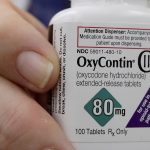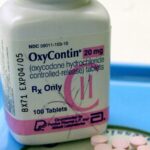How OxyContin Ruined My Productive Years – Michel

“Over the span of four to five years, my life had become entangled with a dangerous routine of substance use, particularly involving hydrocodone and other lesser painkillers. My descent into this challenging journey began to reach its peak around the year 2011-2012. Here’s a detailed account of how my daily life revolved around my addiction during that time:
Each day, I would reluctantly awaken between 8 AM to 9 AM, the previous day’s effects wearing off, signaling the start of a new cycle. My first instinct was to crush half an OxyContin pill and snort it, eagerly awaiting the onset of that familiar rush, slowly bringing a semblance of normalcy back into my life. Following this ritual, I’d try to consume something for breakfast, though my appetite was often suppressed.
The rest of my day was a haze, oscillating between listening to music and watching television while meticulously planning how to ration my dwindling Oxy supply for the week ahead. Anxiety would grip me as I assessed my remaining stash, and I’d often resort to desperate measures, sending frantic texts to my supplier, hoping that he had restocked. Our rendezvous typically took place in the early afternoon at the store where he worked, where I’d anxiously wait for any lingering customers to depart so that we could indulge and I could replenish my ever-depleting stash.
The hours would pass as I hung around, continuously consuming more OxyContin pills every hour, which became a daily ritual. As evening approached, I’d return home with my newly acquired stash, have dinner, and continue to idle away my time in a haze of narcotic bliss. This destructive cycle would repeat itself day after day.
However, the darkest moments were when my supplier had nothing to offer. In those dreaded times, panic would set in, and I’d embark on a frantic quest, driving around desperately in search of a new source, blowing up my dealer’s phone with relentless texts and calls. When all hope was lost, I’d be left with the agonizing experience of withdrawal, enduring hours of discomfort, often sitting in the shower, grappling with the physical and emotional torment.
My addiction reached a point where it began to overshadow every aspect of my life. Whenever I spent time with friends or family, I’d find excuses to isolate myself, sneaking away to bathrooms or other secluded places to snort OxyContin, all in an attempt to maintain my fragile facade of normalcy. It was a deeply embarrassing and isolating existence.
Fortunately, there was a glimmer of hope when my supplier went through phases of trying to break free from his own addiction. During one of his more motivated moments, he offered to obtain Suboxone to help me on my path to recovery. I distinctly remember the night when he secured Suboxone strips and handed them to me as a lifeline, just in case I ever decided to take the arduous journey towards sobriety.
As fate would have it, I eventually found myself in dire financial straits despite having a steady job throughout this tumultuous period. This hardship forced me to consider whether Suboxone might hold the promise my supplier had spoken of. Over the course of a week, I made the courageous decision to wean myself off OxyContin, with the Suboxone strips serving as a vital tool in this daunting process. On December 24, 2012, I consumed my last Suboxone strip and made a solemn commitment to remain drug-free, a promise I’ve faithfully upheld since.
Looking back, I cannot help but harbor regrets for the five years I spent ensnared in the clutches of addiction. However, my journey towards recovery has been marked by resilience and determination, and I remain resolute in my pursuit of a healthier, drug-free life”
The story of Michel is sadly all too familiar, and it serves as a stark reminder of the many young men and women who lose productive years to the devastating grip of drug addiction. While addiction can be a formidable adversary, it’s crucial to emphasize that the power to break free ultimately rests in the hands of the individuals facing this daunting challenge.
1. Recognition and Acceptance: The first step toward recovery is often recognizing and accepting that there is a problem. This self-awareness is a significant and empowering moment, as it signifies a readiness to confront the issue head-on.
2. Seeking Help: Breaking free from addiction doesn’t have to be a solitary journey. Seeking help from healthcare professionals, therapists, support groups, or addiction treatment centers can provide the necessary guidance and resources. These professionals can offer expertise, guidance, and strategies to overcome addiction.
3. Building a Support Network: One of the most powerful tools in recovery is the support of others. Friends, family, or support groups can provide encouragement, understanding, and a sense of belonging that is often crucial during challenging times.
4. Setting Goals: Setting realistic and achievable goals for recovery is empowering. These goals can provide a sense of purpose and motivation, helping individuals regain their focus on building a fulfilling life beyond addiction.
5. Developing Coping Strategies: Addiction often serves as a way to cope with underlying emotional or mental health issues. Learning healthy coping strategies, such as mindfulness, stress management, and emotional regulation, can be transformative in maintaining sobriety.
6. Education and Awareness: Understanding the science of addiction and the effects of drugs on the body and mind can be empowering. It enables individuals to make informed choices and strengthens their resolve to stay drug-free.
7. Self-Care: Prioritizing physical and mental health through exercise, a balanced diet, and adequate sleep is essential in the recovery process. Taking care of oneself fosters resilience and overall well-being.
8. Relapse Prevention: Relapses can happen, but they should not be viewed as failures. Rather, they should serve as opportunities for learning and growth. Developing a relapse prevention plan can help individuals identify triggers and develop strategies to avoid them.
9. Long-Term Commitment: Recovery is an ongoing journey, and maintaining sobriety may require a long-term commitment. Staying vigilant and continuously working on personal growth and resilience is key to preventing relapse.
10. Inspiration from Success Stories: Stories of individuals who have successfully broken free from addiction can serve as a source of inspiration and hope. Knowing that recovery is possible can reinforce one’s determination to overcome addiction.
While the battle against addiction can be arduous, it’s vital to remember that individuals possess incredible inner strength and resilience. The power to break free from addiction lies within, waiting to be harnessed. With determination, support, and a commitment to personal growth, individuals can reclaim their lives, rediscover their potential, and contribute positively to society. Recovery is not just about overcoming addiction; it’s about rediscovering one’s identity, purpose, and the joy of living a fulfilling, drug-free life.





